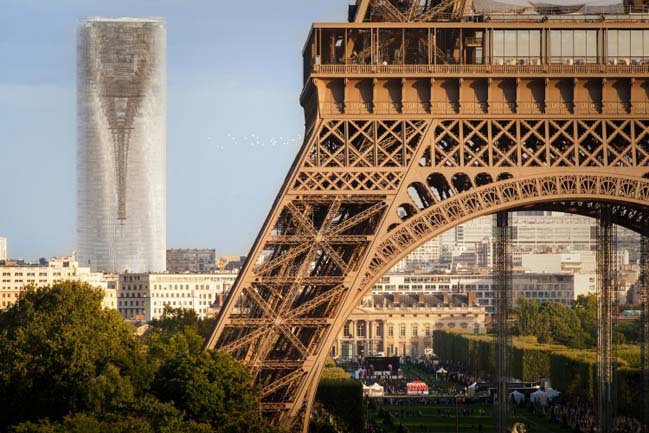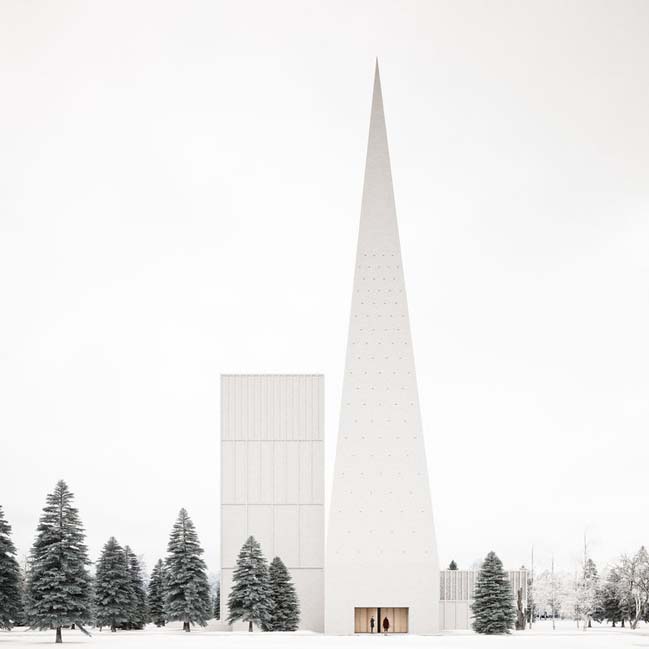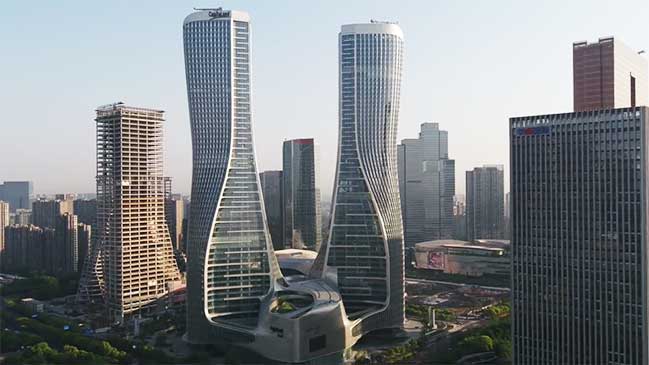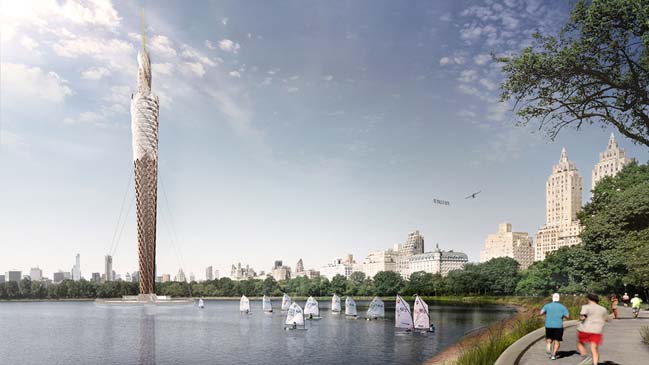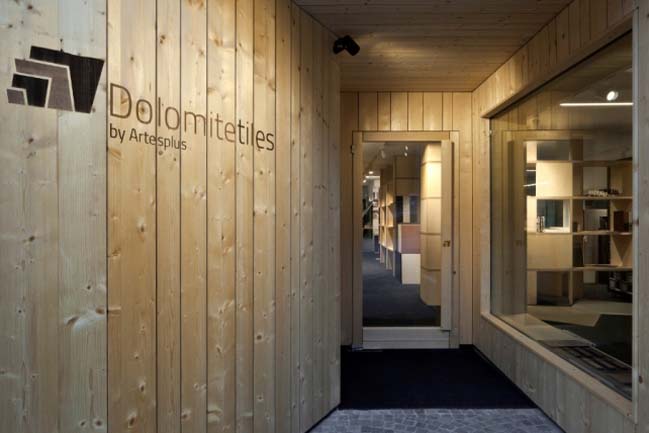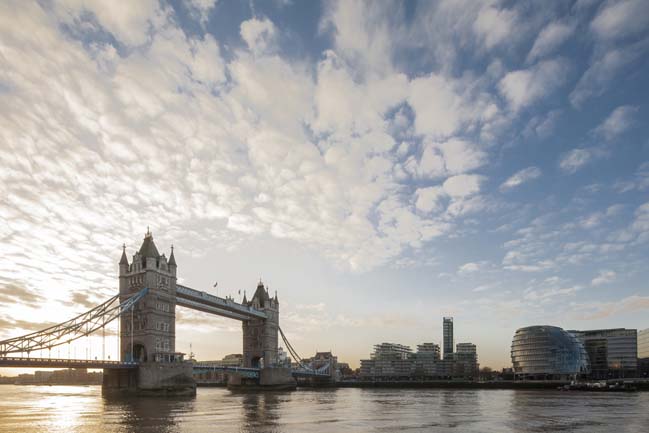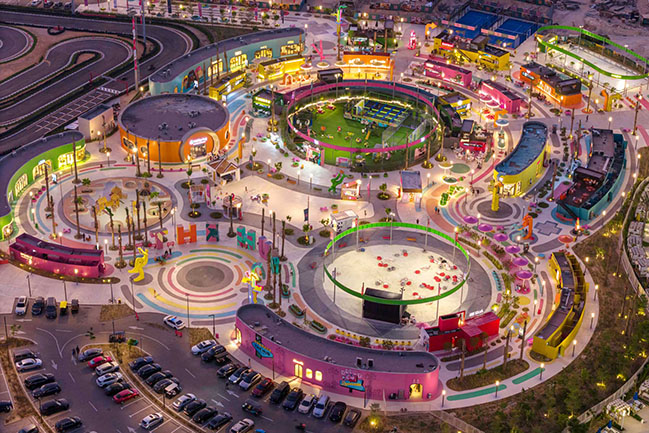09 / 20
2017
Nautilus Eco Resort is a eco-tourism complex designed by Vincent Callebaut Architectures to unite the knowledge of the scientific community with the will of eco-tourists to optimize the revitalization and protection of a degraded ecosystem such as in the Philippines.
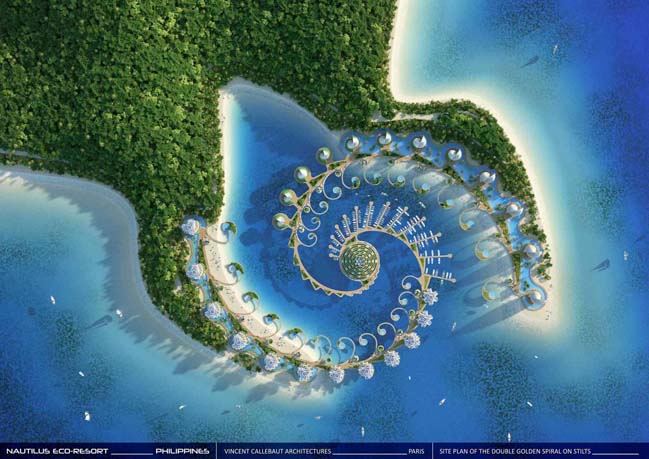
Architect: Vincent Callebaut Architectures
Location: Palawan, Philippines
Year: 2017
Surface area: 27,000 sqm
Building height: 68m40
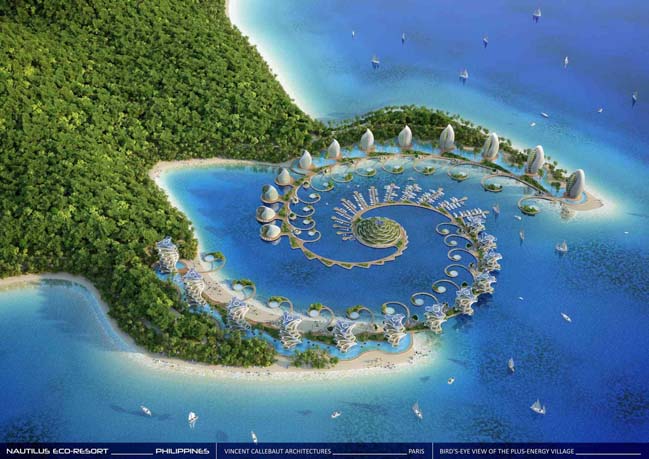
Project's description: The Philippine seas are severely threatened. Over-fishing, mass tourism, massive pollution of plastic waste and toxic products, as well as climate change present real threats to the health of the archipelago and, of course, the survival of its inhabitants. Corals are dying, mangrove areas are being destroyed, sea-grass beds are suffocated by erosion, and vital populations of fish and other marine species are declining dangerously.
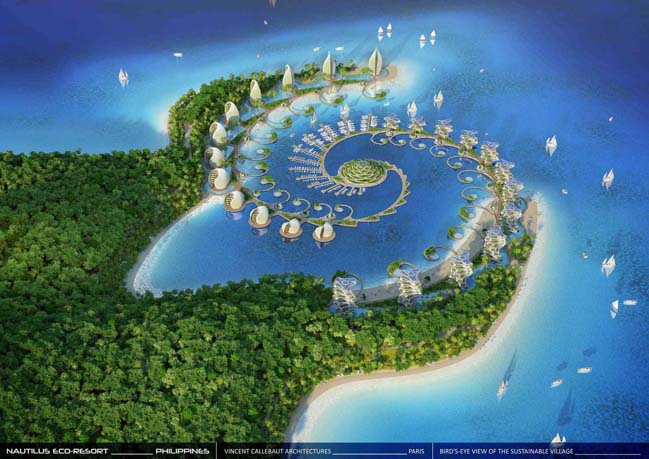
And yet the Philippines, with its 7,641 islands and islets, and its 266,000 square kilometers of coastal, turquoise waters and bays, is one of the true sanctuaries of marine biodiversity in the world, at the top of the famous "Coral Triangle".
These seas harbor at least five species of marine turtles, 28 marine mammals, 168 cartilaginous fish, 648 species of mollusks, 1,755 fish associated with reefs, and 820 species of algae.
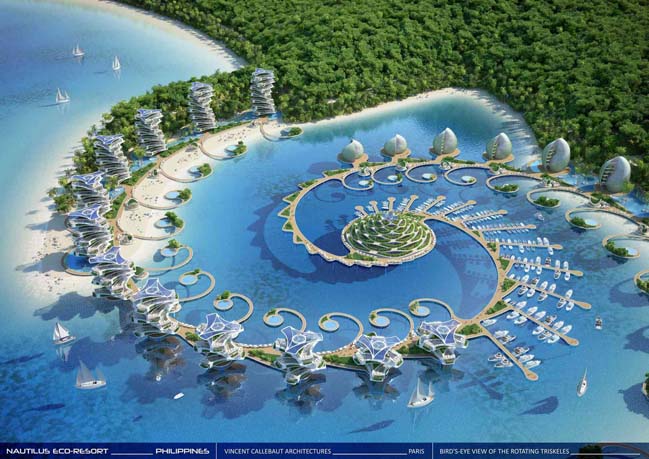
What would resilient tourism, capable of revitalizing the symbiosis between humans and the environment, look like? How should we humbly accompany the local population to implement urgent measures to establish marine protected areas, to protect them from severe floods, landslides, and typhoons, to restore waste management, and revitalize their biodiversity? In short, how can we reconcile the human adventure with the whole of life?

Tourism has become the most important industry at the international level. Its potential to contribute to sustainable development is therefore substantial and can be reinvented. Since the early 1980s, ecotourism has been exploring ways to reconcile the socio-economic development of our societies with the protection of the environment.
One step further, the Nautilus Eco-Resort project is a pioneering, eco-tourism complex designed to unite the knowledge of the scientific community with the will of eco-tourists to optimize the revitalization and protection of a degraded ecosystem such as in the Philippines. Based on biomimicry, the architectures of this Eco-Resort are inspired by the shapes, structures, intelligence of materials and feedback loops that exist in living beings and endemic ecosystems.
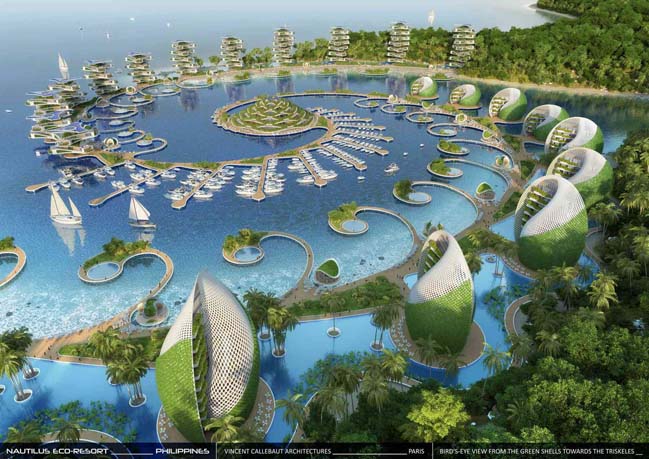
Ethical and eco-friendly, the Eco-Resort promises to the host populations and travelers to be actively involved with engineers, scientists, and ecologists in the protection of the environment that it wants to discover.
This collaborative concept offers responsible ecotourism based on education and interpretation in a natural environment, where the resources and well-being of local populations are to be preserved and gradually restored in a voluntary approach to "reimburse ecological debt".
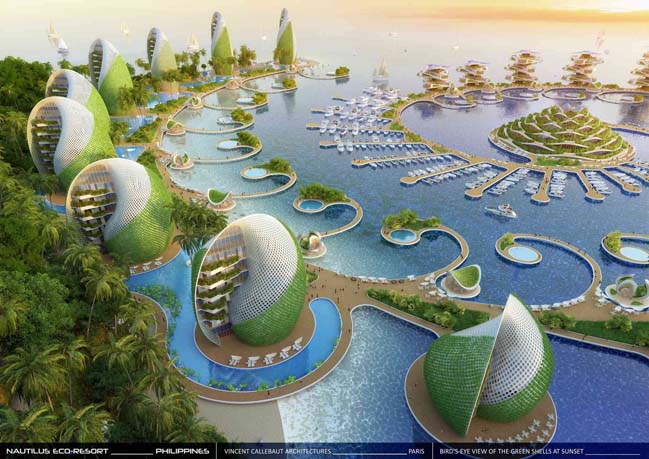
By minimizing its ecological footprint, the experience is centered on the preservation of nature and local urban ecology while respecting endemic ecosystems and agro-ecosystems.
While upgrading the natural heritage and culture, this "zero-emission, zero-waste, zero-poverty" project will be 100% built from reused and/or recycled materials from the archipelago.
Self-sufficient in energy and food, it will satisfy its needs thanks to renewable energies and permaculture. A zero-waste policy means that it will systematically upgrade its own waste into resources. Through a co-creation process, the Eco-Resort will contribute to the well-being of local communities by including them in its planning, development, and operation.
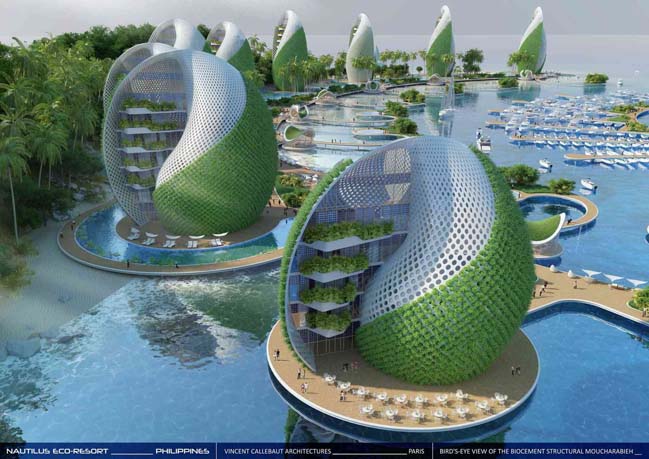
Through crowdfunding, the project will generate funds for the site's conservation with the association of preservation of fauna and flora. It will directly support local economic development in the form of jobs and income. Finally, it will encourage respect for the archipelago's different cultures.
It is above all a project made to exchange and transmit ecological gestures between the natives and the newcomers. It will ask volunteer ecotourists to clean the washed-up plastic waste from beaches, put in place "cradle to cradle" recycling schemes, learn permaculture, protect coral crops, restore reasonable fishing, which will allow nature to regenerate, or strengthen natural protection against flooding.
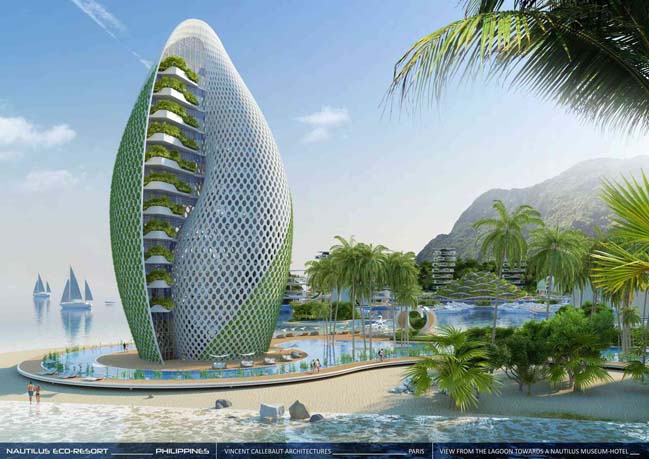
"Upcycling" means using waste and consumer products to make new objects or materials. In this process of industrial ecology and economical zero-waste logic, everything is transformed: series production collapses from factories, plastic waste recovered at sea, glass bottles, non-edible agricultural waste, or old boats.
The notion of waste is thus banned in favor of the notion of a closed cycle and circular economy. To ensure that the Nautilus Eco-Resort is built in perfect harmony with the climate, the spirit of the place, and its resources, bio-sourced materials derived from vegetable biomass will be adopted. For example: co-products from agriculture or wood and hemp wool for thermal insulation, microalgae and linseed oil to produce organic tiles, local tropical wood species from eco-responsible forests for pontoons and wood floors.
>> Click here to view full the project
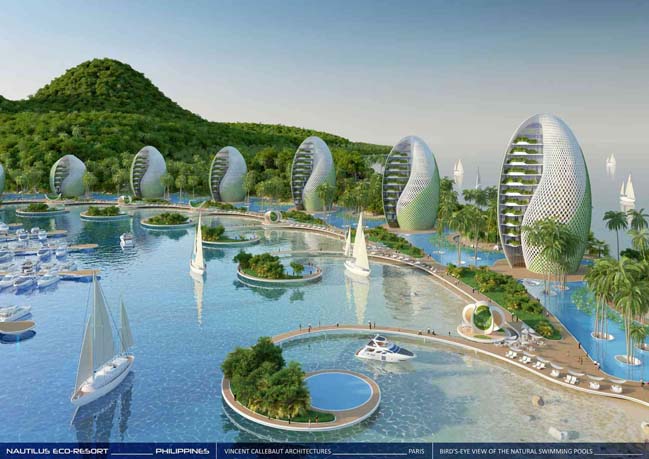
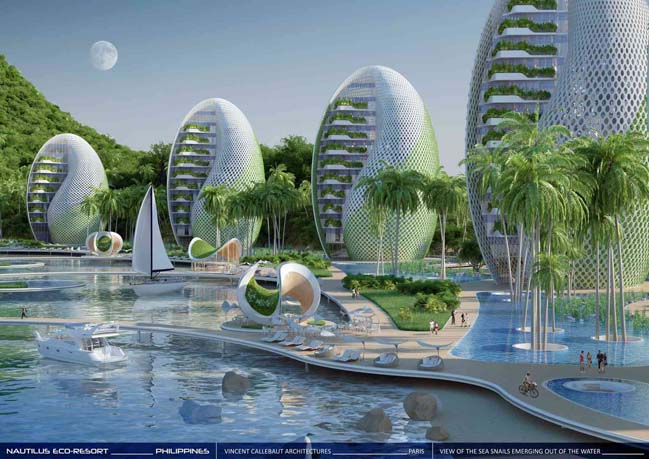
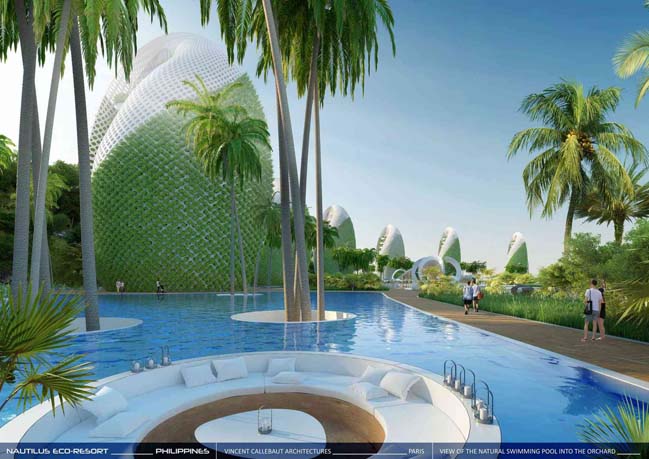
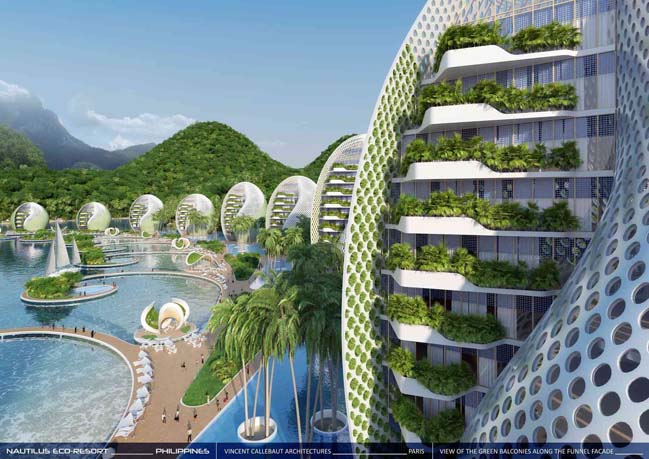
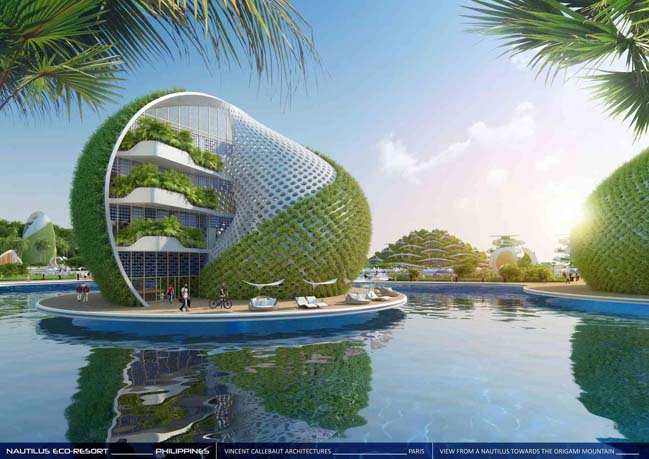
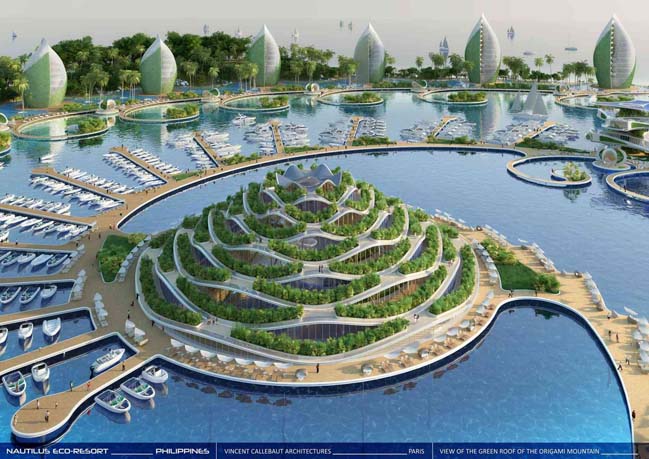
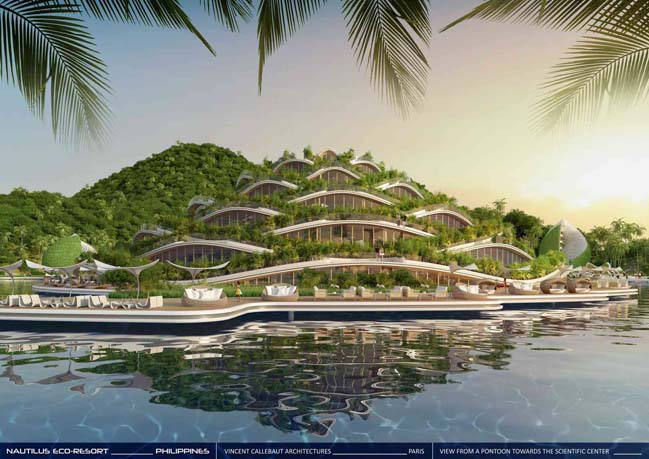
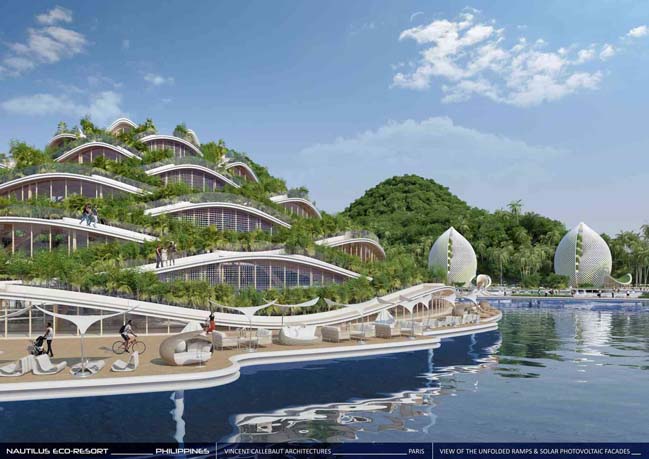
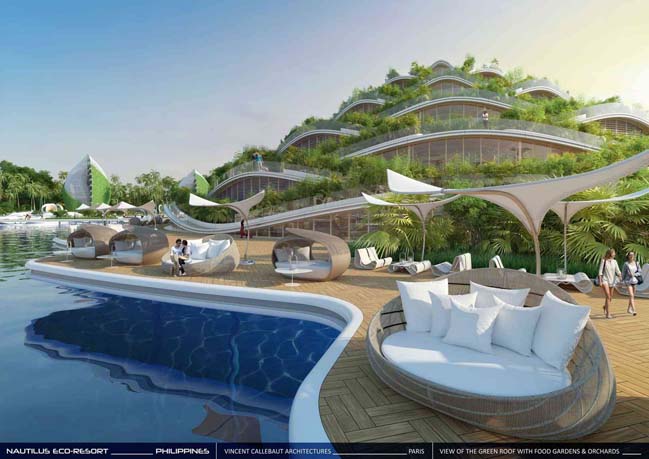
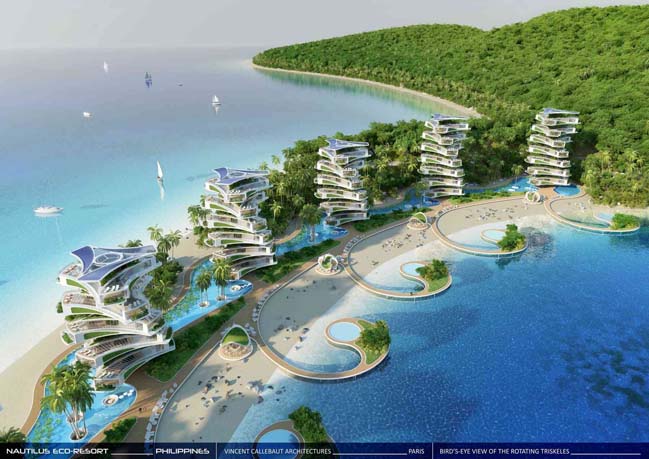
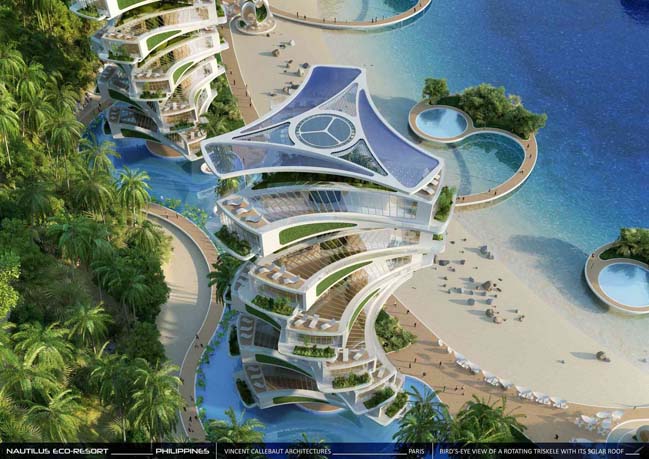
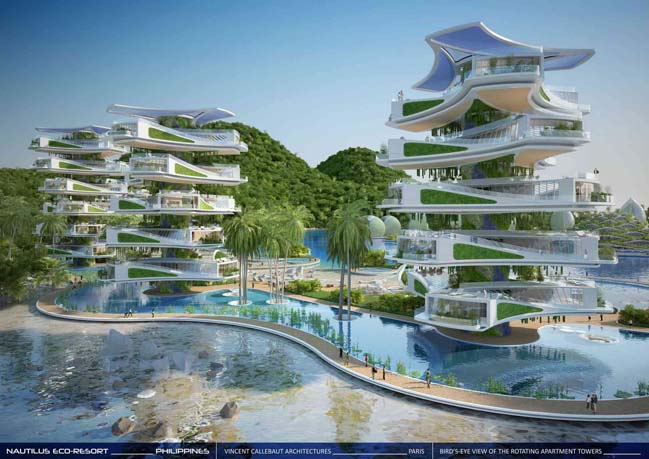
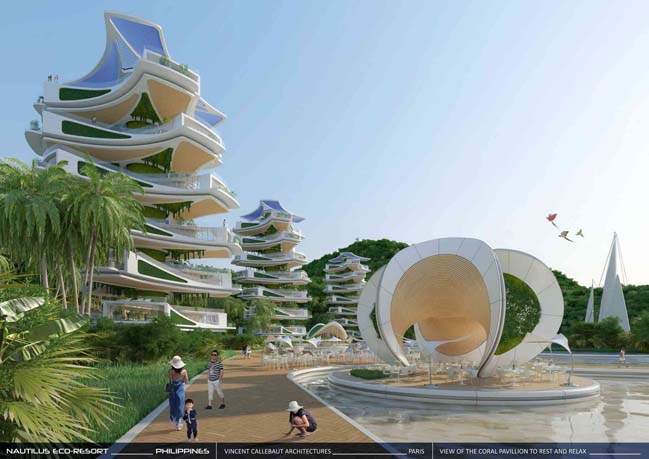
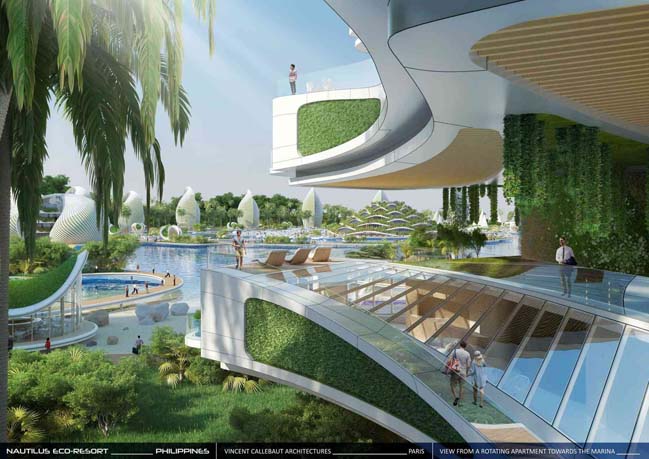
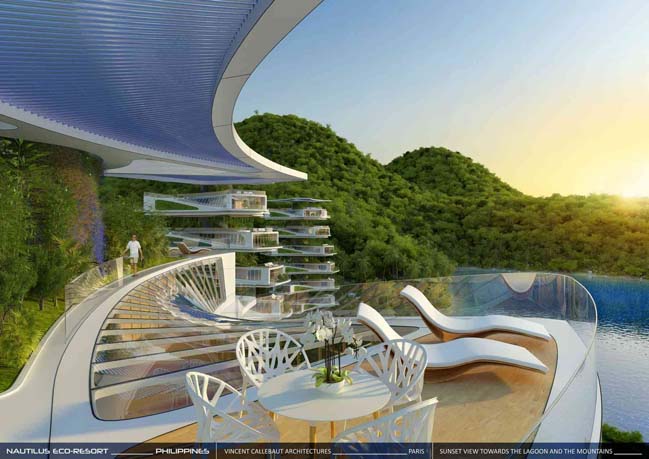
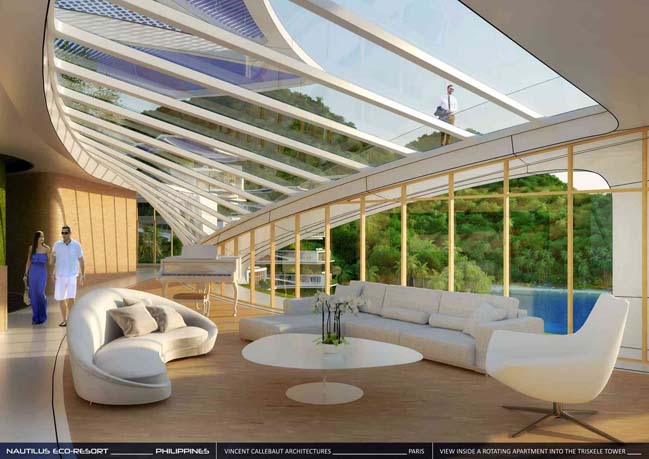
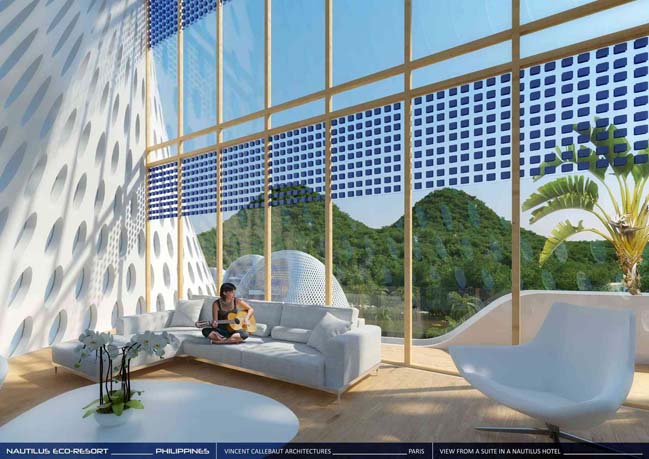
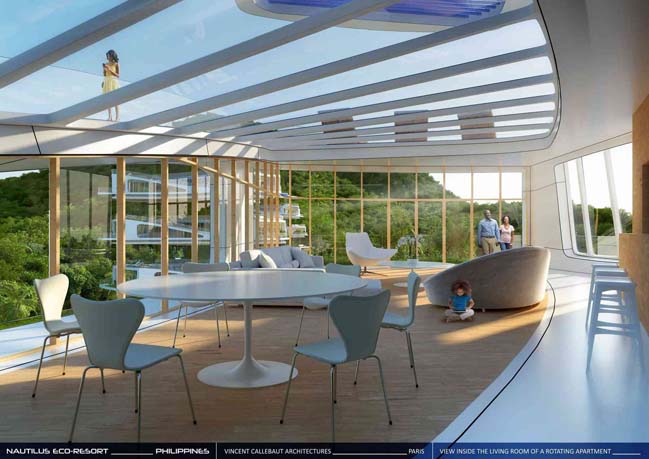
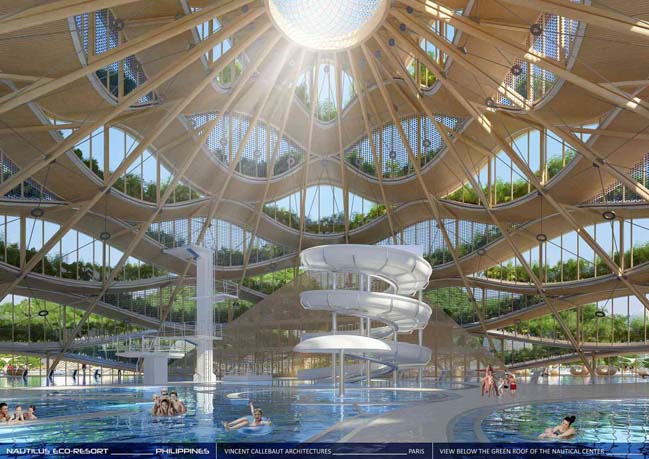
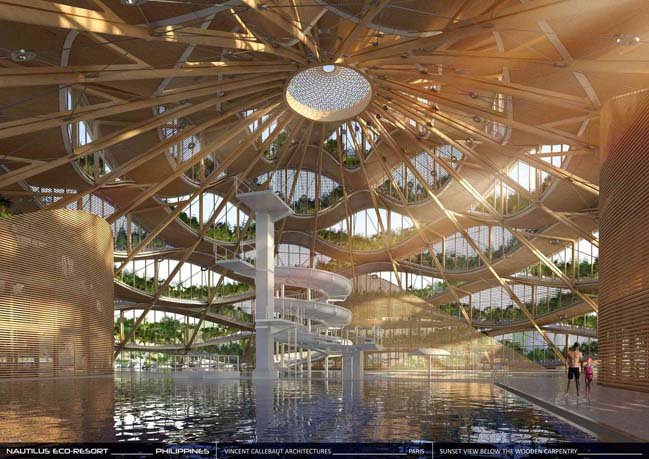
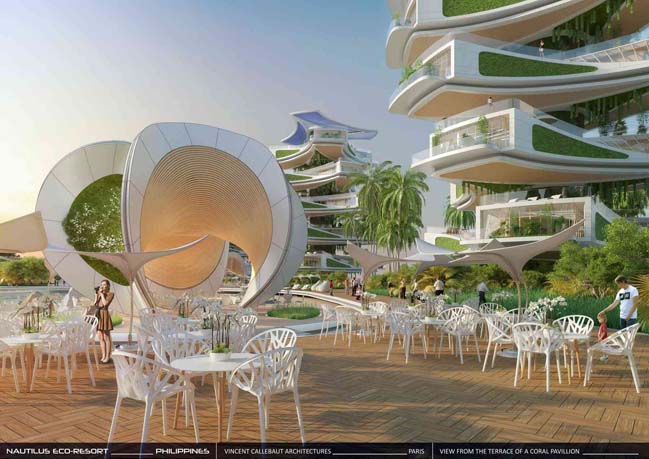
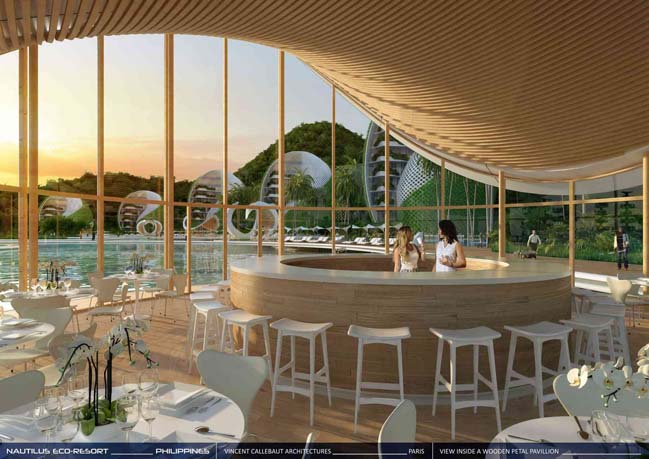
> Futuristic architectural concept for luxury resort
> The World's greenest resort by Baharash Architecture
Nautilus Eco Resort by Vincent Callebaut Architectures
09 / 20 / 2017 Nautilus Eco Resort is a eco-tourism complex designed by Vincent Callebaut Architectures to unite the knowledge of the scientific community with the will of eco-tourists
You might also like:
